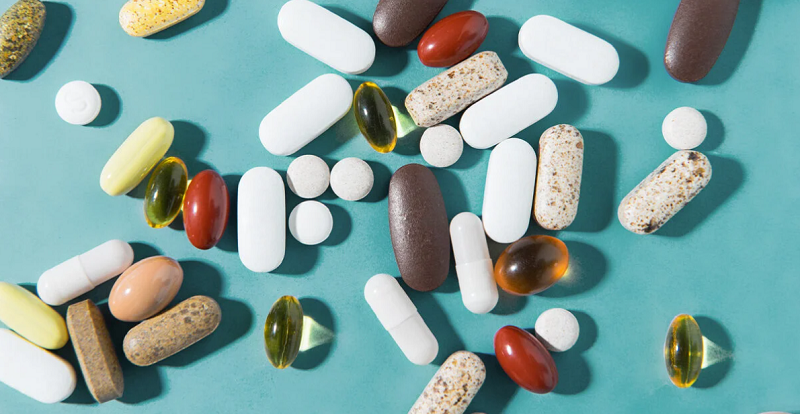Is it a good idea to take dietary supplements?

Have you ever found yourself staring at a bottle of vitamins or wondering if those fish oil pills are actually worth taking? With so many supplements on the market, it's hard to know what will truly benefit your health and which ones might be more harmful than helpful. In this blog post, we'll take a closer look at the safety and efficacy of two common supplements: vitamin C and fish oil pills. So sit back, grab a glass of water (or orange juice!), and let's dive into the world of dietary supplements together.
If you're considering taking vitamin C or fish oil pills, you might wonder how well they will work and if they are safe. First, decide whether you need them.
Almost half of Americans take dietary supplements every day or occasionally. Vitamins, minerals, and herbal products, also known as botanicals, are common supplements available without a prescription. They come in pill, powder or liquid form.
These supplements ensure that people get enough essential nutrients and maintain or improve their health, but not everyone needs them.
Carol Haggans, a registered dietitian and consultant to the National Institutes of Health, says you don't need supplements if you eat a variety of healthy foods.
Taking supplements before surgery or with other medicines may cause side effects. If you have certain health conditions, supplements can also cause problems. In addition, many supplements haven't been tested on children, pregnant women or other groups. If you want to take dietary supplements, speak with your healthcare provider first.
In order to integrate and manage your care, Dr. Craig Hopp, an expert in botanical research at the NIH, recommends discussing supplements with your doctor.
Food and Drug Administration (FDA) regulates dietary supplements as foods, not as drugs. The label may claim certain health benefits, but unlike medicines, supplements cannot cure, treat, or prevent diseases.
Taking supplements with the expectation of reversing chronic diseases is unwise, according to Hopp.
In some cases, supplements can enhance health in different ways. Multivitamins, calcium, vitamins B, C, and D, as well as multivitamins, are the most popular nutrient supplements. Vitamins C and E are antioxidants—molecules that help maintain health and prevent cell damage. Calcium supports bone health. Vitamin D helps absorb calcium.
During pregnancy, women need iron and breastfed infants need vitamin D, while all women of childbearing age should consume 400 micrograms of folic acid each day.
"Vitamin B12 mostly comes from meat, fish, and dairy foods, so vegans may need to take a supplement to ensure they get enough." Haggans says.
Fish oil has been shown to promote heart health. Of all the supplements not derived from vitamins and minerals, Hopp says "fish oil probably has the most scientific evidence."
Glucosamine (for joint pain) and herbal supplements such as echinacea (for immune health) and flaxseed oil (for digestion) also need further study.
There are many mild effects with few risks associated with supplements, but use caution. Vitamin K, for example, reduces the ability of blood thinners to work. Ginkgo can make blood thinner. As well as relieving depression, anxiety, and nerve pain, St. John’s wort can also speed up the breakdown of many medications, such as antidepressants and birth control pills, and lessen their effectiveness.
Comfrey and kava, for example, can seriously damage the liver, even if they are advertised as "natural".
For herbs, but also for nutrients, Haggans says it's important to know the chemical makeup, how it's prepared, and how it works in the body. Ask your health care provider if you need supplements, how much they should be, and whether they will interact with medications you already take.
Check the % Daily Value (DV) for vitamins and minerals to make sure you don't get too much. "It's important to consider the DV and upper limit," says Haggans.
Scientists still have a great deal to learn even about standard vitamins. A recent research project revealed unexpected information regarding vitamin E. Prior research hinted at the possibility that men who took vitamin E supplements may have less of a chance of having prostate cancer. Nevertheless, according to Dr. Paul M. Coates, director of NIH's Office of Dietary Supplements, the results of a big NIH study with over 29,000 men indicated the opposite - taking supplementations with vitamin E raised their risk of the disease in contrast to what was anticipated. That is why it is crucial to carry out clinical trials on supplements to affirm their effects.
Supplements are not regulated as drugs, so the FDA does not evaluate their quality or assess their effects on the body. If a product is found to be unsafe after it reaches the market, it can be restricted or banned.
Besides making sure the product is pure, manufacturers must also list the ingredients and their amounts accurately. In spite of that, there is no regulatory agency that ensures that labels match what's in the bottles. You can get less, or sometimes more, of the ingredients listed on the label. Some ingredients may not even be listed at all.
Some independent organizations test supplements and offer seals of approval. These seals don't guarantee that the supplements are safe or effective; they just ensure the product was made properly.
You should be fine with products sold nationally in stores and online where you typically shop, Coates says. According to the FDA, herbal remedies promoted for weight loss and sexual or athletic performance enhancement are more likely to contain pharmaceutical ingredients.
The NIH offers fact sheets on dietary supplements at ods.od.nih.gov/factsheets/list-all/ to help you find reliable information. Additionally, the NIH recently launched an online dietary supplement label database at www.dsld.nlm.nih.gov. This free database lets you look up the ingredients of thousands of supplements. It includes dosage, health claims and precautions from the label.
Check out NIH's free My Dietary Supplements (MyDS) app for your smart phone or tablet for personalized, on-the-go information about dietary supplements.
This app lets you track the vitamins, minerals, herbs, and other products you take, as well as those taken by your parents, spouse, or children.
The decision of whether or not to take dietary supplements and which ones to take is a serious matter, says Coates. “Assess products of interest with your health care providers and decide together what might be best for you, if anything, to take for your overall health. Learn about their potential benefits and risks first.”









